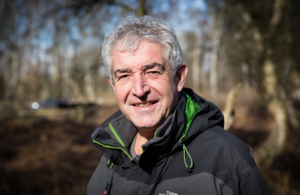Natural England launches species reintroductions task force to help drive recovery of declining species
New task force will consider reintroduction of species to help populations recover as part of the Nature Recovery Network

- Tony Juniper, Natural England chair, welcomes new legal targets to tackle the biodiversity crisis and commitments to tackle climate change
Natural England is set to establish a species reintroductions task force, after it was announced by the Environment Secretary today. Species reintroductions, alongside habitat restoration and greening of urban spaces, will be part of work undertaken to meet new legally binding biodiversity targets to reverse the decline of wildlife.
Natural England will be heading up the task force as secretariat, considering the reintroduction of species which have been lost to England – such as wildcat – and the introduction of declining species into new areas such as pine marten, dormice, corncrake, short-haired bumblebee and large blue butterfly. This action is being taken to help populations recover and will make up part of the Nature Recovery Network (NRN). It will bring together experts, landowners and NGOs to share knowledge, assess and prioritise species for reintroduction and to develop partnerships for delivering high quality projects.
Natural England Chair Tony Juniper, speaking at the launch with the Environment Secretary, welcomed the stronger measures to protect biodiversity through legally binding targets and the proactive approach to the restoration of native species to England, contributing to nature’s recovery at scale.
Speaking today at Delamere Forest, Natural England chair, Tony Juniper, said:
A new target for Nature recovery enshrined in law will be a powerful new driver for coordinated action, as was found on cutting greenhouse gas emissions following the passage of the Climate Change Act. Meeting a stretching Nature target can be done, so long as we can join up different policy areas, such as farming, housing development and infrastructure, while also improving overall environmental quality in terms of air and water pollution.
Natural England stands ready to work across Government to help make it happen, including through the delivery of an ambitious Nature Recovery Network that will see not only the improvement of our vital protected areas, more green spaces and trees in towns and cities and the restoration of lost habitats, including woodland, wetland and heaths, but also the return of lost species.
Also launched today by the Environment Secretary, George Eustice, are the England Peat Action Plan and ‘Nature for Climate Peatland Grant Scheme’, benefiting people and wildlife by increasing, improving and joining-up wildlife-rich places across England. This will be supported by an expected over £50 million between 2021 and 2025.
The ‘Nature for Climate Peatland Grant Scheme’ programme, to be administered by Natural England, will offer multi-annual grants which will encourage and enable partnerships to develop much more ambitious and extensive proposals to restore the integrity and quality of peat systems across large landscape areas.
The England Peat Action Plan aims to help restore 35,000 hectares of degraded peatlands in England over the next 4 years. This will secure 9 megatonnes of carbon dioxide equivalents cumulatively by 2050, as well as deliver a range of wider environmental and social benefits, such as cleaner water and richer wildlife.